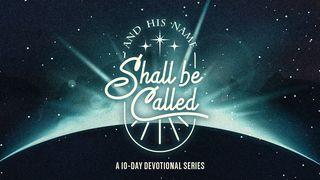5-Day Commentary Challenge - The Book Of PsalmsSample

PSALM 8
Psalm 8 is one of the better-known psalms. The almost identical opening and closing verses often have been put to music. The fourth verse is well-known because the author of Hebrews quotes it and applies it to Jesus Christ.
The meaning of the word Gittith in the title of the psalm is unknown. Neither context nor related words reveals what it means. Psalms 81 and 84 use the word and they are works of jubilant praise. The two most common suggestions are that it is a tune or a musical instrument.
The psalm falls easily into the following chiastic outline:
A God’s excellent name (v. 1)
B God’s rule (vv. 2–3)
C Man’s meanness (v. 4)
C´ Man’s greatness (v. 5)
B´ Man’s rule (vv. 6–8)
A´ God’s excellent name (v. 9)
The first half of the first verse is identical to the entire last verse and so these two elements are coupled in the outline. The two longer sections marked “B” describe God’s rule and man’s rule, respectively. The two middle verses (4, 5) are direct contrasts. First there is man’s low view of himself as compared to God and then God’s view of man.
The first verse is more extensive than the last. It states that God’s name is excellent and worthy to be adored over all the earth, but it also states that His glory is set in the heavens. The latter part of verse 1 may belong with the next section of the outline.
From the suckling baby described in verse 2 on up to the highest heavens, God is Lord of all. Verse 2 is often recalled when a child says something very profound. Sometimes in their naivete children pronounce great truths which adults know but forget. One fall evening the neighbor children were playing beside our house. As it grew dark one of them said they should go home, but another responded: “Why should we be afraid of the dark? God’s here.” This is the meaning of Psalm 8:2. The expression babes and sucklings may indicate children old enough to talk. Hebrew mothers often nursed their babies for four or five years.
The purpose of using such feeble instruments to announce God’s glory is to offend the adversary. How many unbelievers have been rebuked by the innocently offered remark of a child schooled in the basics of God-fearing living! When the children sang “Hosanna” on Palm Sunday, Jesus reminded the people of this verse (Matt. 21:16).
From the earthbound sphere of children, verse 3 lifts our attention to the heavens. They are the work of God’s fingers. He has ordained the various heavenly bodies. The word “when” connects this verse very closely with the next.
Having focused the reader’s attention on the heavens, the psalmist then wonders what dealings God would ever have with man. Why should a mortal be thought of or visited by Deity? The fifth verse answers that question immediately. It is because man is really just a little lower than God. The Hebrew word usually means “God,” sometimes it means “gods,” and, in a few instances, “angels.” The point is that man is not just a little higher than the animals but a little lower than heaven.
Hebrews 2:6–8 quotes this passage and applies it to Christ. That New Testament passage shows that Christ is superior to angels. But because it seems to say much the opposite (the Greek word in Hebrews is “angels” and not “God”), some take the word “little” to refer to time. According to that interpretation, He was for a little while lower than the angels. This is supported by the commentary that follows in Hebrews 2:9. Psalm 8 doubtlessly is speaking of all men in general, but the writer of Hebrews, by divine inspiration, refers specifically and specially to Jesus Christ, the Son of Man and the Son of God.
Man, and particularly Jesus Christ, is crowned with glory and honor. His is a glory far grander than ours; nevertheless, the psalm can refer to both. God made everything in the world, and man is to rule it. Verse 6 says this in general terms and verses 7–8 in specific terms. Remember the chiastic arrangement of this psalm and note the references to the heavens in verses 3 and 8. God made the heavens; man is in control over the birds of the heavens.
The benediction which opened the psalm is repeated in the last verse. This time it has more meaning. God is worthy of more praise because of His love and concern for His creatures, including man. We are exalted to be His vice regent. We, of all His creatures, are able to offer intelligent and voluntary praise. The Lord is our Lord. How excellent is His name in all the earth!
Scripture
About this Plan

This reading plan is from the Everyday Bible Commentary on Psalms 8, 18, 19, 51 and 71. It is for anyone who has a desire to grow deeper in their understanding of the Scripture and strengthen your relationship with God by exploring the riches of the book of Psalms.
More
We would like to thank Moody Publishers for providing this plan. For more information, please visit: https://www.moodypublishers.com/books/bible-study-and-reference/psalms---everyday-bible-commentary/
Related Plans

IF NOT YOU, WHO?: 5 Days to Go and Tell

More Than a Story

Silent Nights, Peaceful Days: Rest for Moms at Christmas

The Results of a New Life in Christ

And His Name Shall Be Called

5 Reflections on Mary's Song for Advent

The Blessing of Jesus

Living Thankful, Living Sober

Train Up a Child: Christmas
